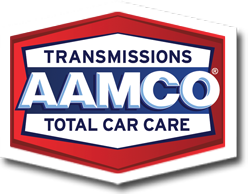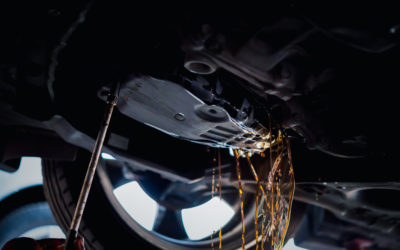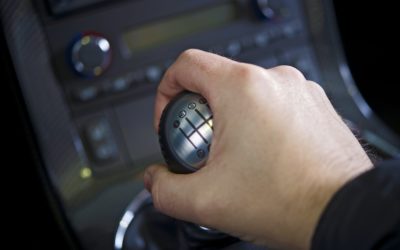You’re used to the regular hum of the engine and tick of your blinker – but what if other noises start to pop up while you’re driving your car? Some are nothing to worry about, while others could mean a serious auto repair service is necessary. Fortunately, the type of new sound you’re noticing can also help you identify the potential problem before taking your car to a mechanic.
Related: 5 Ways Oil Changes Help
Related: Tips For Brake Care
Related: Common Transmission Problems
What Is Your Car Telling You?
Your vehicle is telling you some vital information. Where can you go to get those lights and sounds fixed? See us today!
Squealing When You Brake
Normally, your brakes should not make any sound when engaged. If you start hearing squeaking or squealing while pressing down on your brake pedal, you’re probably due for some regular car maintenance. More specifically, it’s time to have your brakes serviced. Making an appointment early on likely means you’ll just need new brake pads but the longer you wait, the more likely it is you’ll need more done.
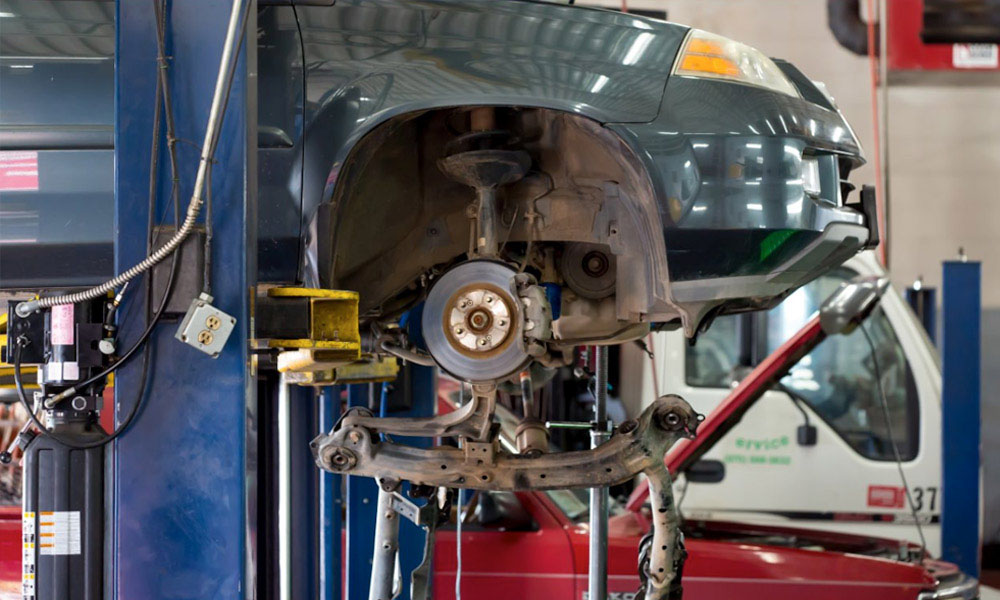
Take a Look at Your Brake Pads
As soon as you start hearing squealing while your brakes are engaged, it’s a good idea to take a look at your brake pads. Over time, they gradually wear down and once you start hearing this sound, it’s the beginning of metal-to-metal contact due to overworn brake pads. If left alone for too long, you risk completely wearing down your brake pads, both causing more damage and posing a safety issue.
Grinding When You Brake
Further down the line of sounds, you don’t want to hear when braking is grinding. If you hear this sound outside of when you engage your brakes, it’s likely a different issue. However, if you only hear grinding when pressing your brake pedal, your brake pads or likely fully worn and now there is full metal-to-metal contact whenever you brake.
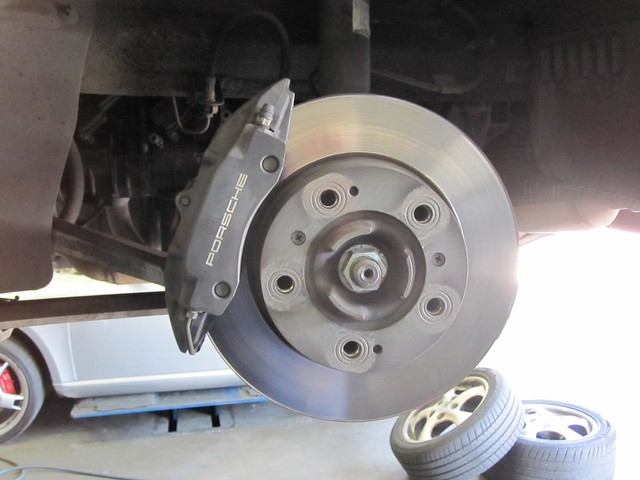
You May Need New Rotors
Not only does this mean your brakes are significantly less effective, but you also will likely need new rotors along with brake pads once you make it to a mechanic. Your metal caliper is grinding on your rotors every time you brake, which causes an uneven surface on your rotors. This will make your brakes less effective even once you have new brake pads installed.
Knocking When You Go Over Bumps
When your car goes over bumps in the road, various parts of your suspension system are responsible for keeping your car off the ground and preventing it from bouncing. If you start noticing a knocking sound when you go over bumps, part of your suspension is likely to blame.
Your Struts Could Be to Blame
What do your struts do? They help cushion the bounce of your car when you drive over bumps. The first thing you’ll likely notice is a rough ride, especially over larger bumps in the road. But struts that are worn out will also cause a lot of knocking and clunking at the same time.
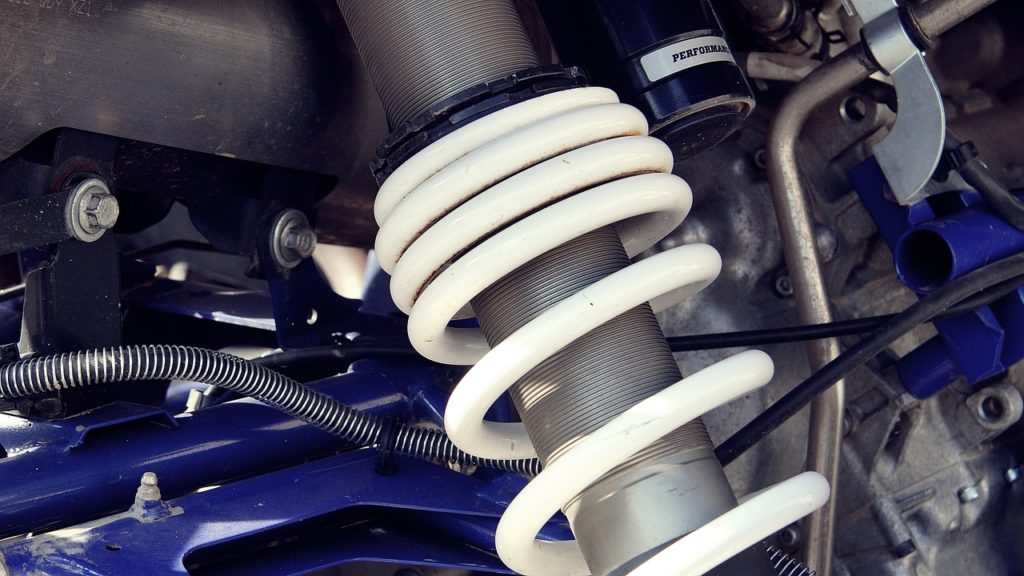
Rattling from Underneath Your Car
Sounds like rattling and knocking require you to pay attention to where they’re coming from. Hearing them from under the hood indicates a very different problem than if they’re coming from underneath your car. If the sound comes from the underside of your car, in particular when you’re sitting idle at a stoplight, your catalytic converter is likely to blame. However, if it’s just that your car is a bit louder than usual and you can tell it’s coming from under your car, you may have an exhaust leak.
Have Your Exhaust System Serviced
Regardless of what you’re hearing from the underside of your car, it’s time to schedule exhaust system maintenance as soon as possible if new sounds startup. These car repairs can vary in price, but if you hear rattling that’s likely associated with your catalytic converter, it’s a job for a trusted mechanic and shouldn’t be put off.
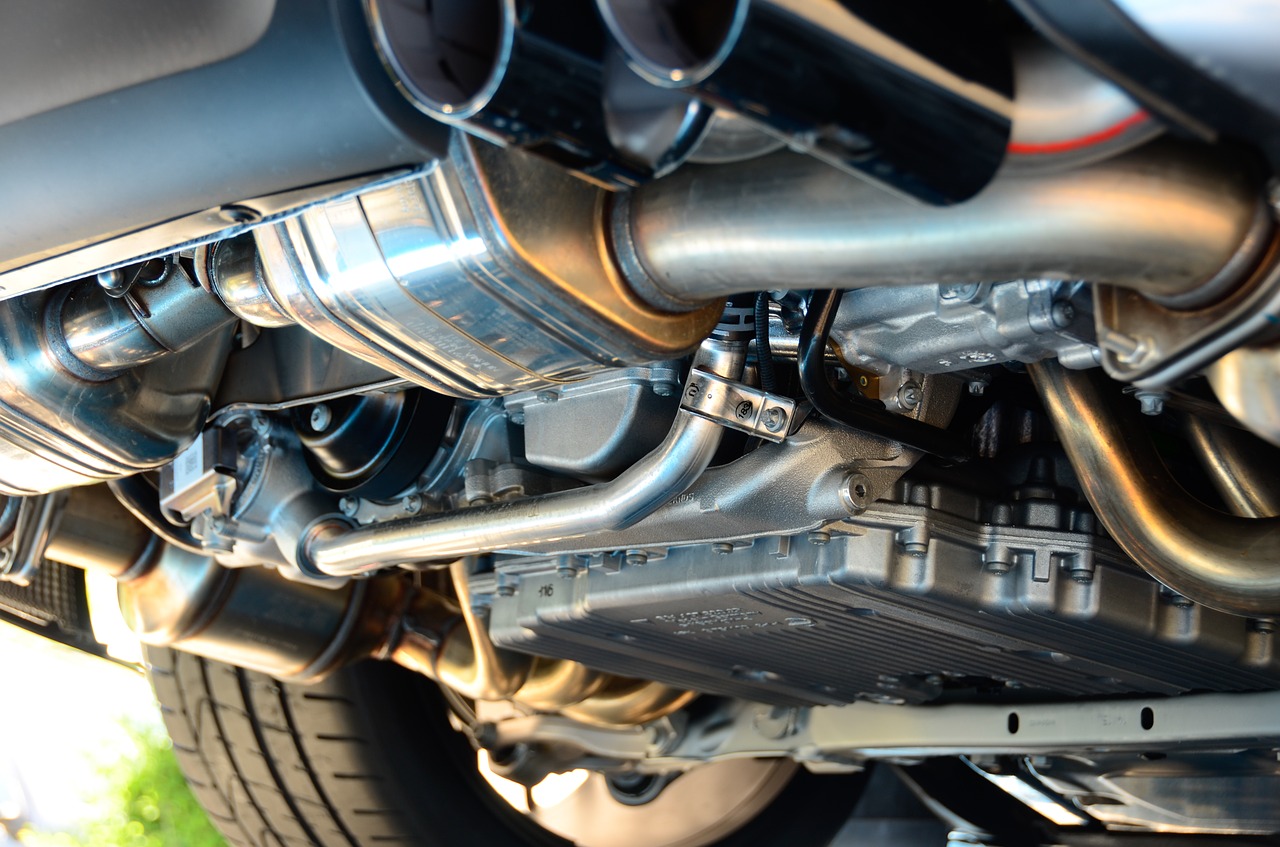
Chirping from Under Your Hood
The last place you want to hear strange sounds is from under the hood of your car. If you start noticing a chirping sound or even squeaking and squealing, the likely culprit is your drive belt. Over time, belts will naturally wear out and as they start to slip, they’ll make a chirping sound. This may be even more noticeable when you turn on your air conditioning.
A Tune-Up Will Check Your Drive Belt
Keeping up with regular maintenance will prevent major problems with your drive belt, also known as the serpentine belt. Every time you get a tune-up, the mechanic will check to make sure no parts like belts are becoming too worn. If you do suspect your drive belt is worn, it’s best to get it checked soon. Waiting to have it serviced risks the drive belt breaking completely, causing major car problems, including major engine repairs.
Strange Sounds Coming from Your Car? Give AAMCO Louisville a Call
Hearing new sounds from your car? The car mechanics at AAMCO Louisville can find the source, diagnose any necessary repairs, and get them fixed so you can get back on the road. From regular car maintenance to major repairs, we have you covered.
Troubleshooting Transmission Shifting Issues
Transmission problems can run the gamut from new noises to difficult shifting. The first step to fixing the issue is to understand what may be going on inside the transmission, whether it’s a problem with fluid or worn components. Don’t let shifting issues continue —...
read moreFluid Fiasco: Diagnosing and Next Steps for Transmission Leaks
From small drips to big puddles, car fluid leaks of any size can cause problems. Like many of your car’s systems, the transmission relies on adequate fluid. When the transmission is operating as it should, fluid provides both lubrication and hydraulic pressure. That...
read moreClutch Conundrum: Unveiling the Telltale Signs of a Worn-Out Clutch
When easy shifting turns to grinding gears, it’s time to take a look at your car’s clutch. This system is essential to keep your vehicle moving. The clutch is responsible for facilitating each gear shift, which determines how much torque is sent to the drive wheels to...
read more